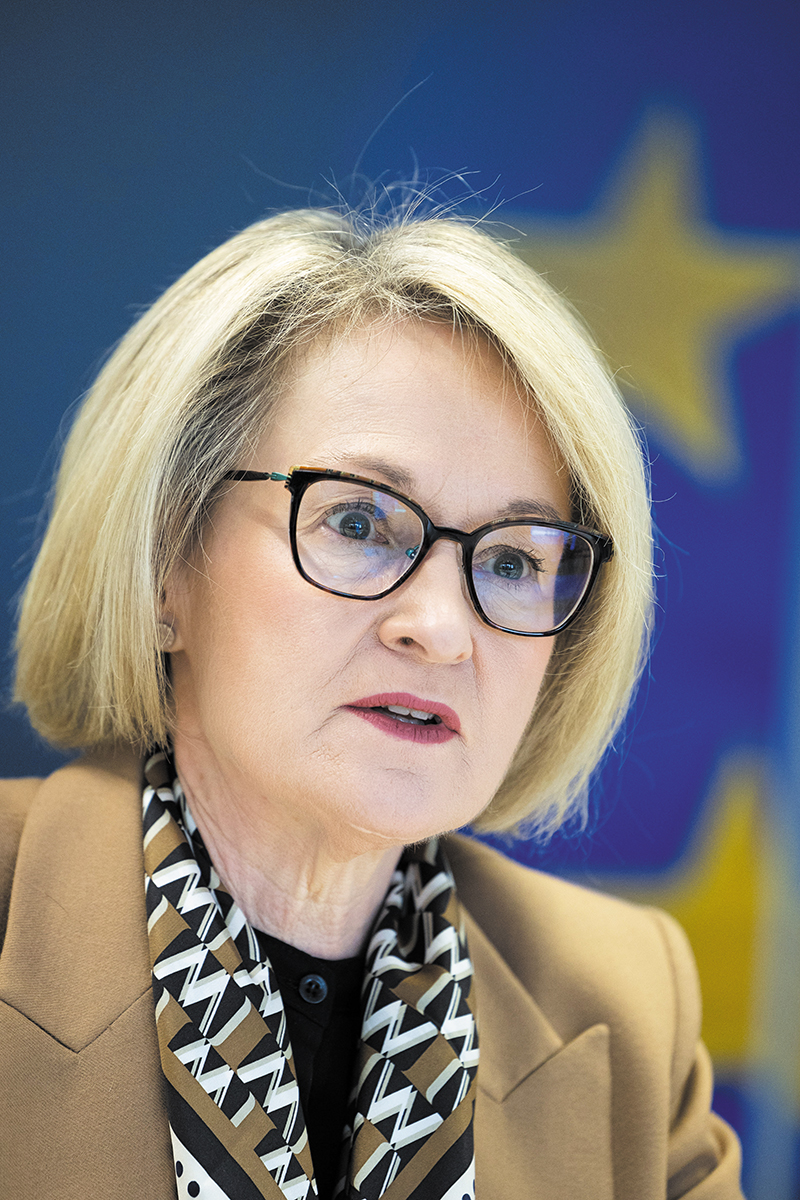Financial education has become vital as the numbers of retail investors in US and Europe increase substantially
The global pandemic may be behind us but its effects are still being felt across a number of sectors. In finance, it highlighted the risks of DIY investing, with retail investors increasing their share of total trading significantly during a time when large swaths of the population were confined at home.
Despite its growing popularity, research shows that over seventy per cent of DIY investors lose money due to common psychological biases.
This brings to the fore the importance of financial literacy in helping individuals make informed financial decisions.
The European Commission (EC) is seeking to address this issue by enhancing financial literacy through initiatives and frameworks, disseminated to Member States, in order to bolster financial education across the EU and maintain a well-regulated investment environment.
DIY investing
The global pandemic inadvertently boosted the popularity of DIY investing. DIY investors are essentially individual investors who choose to build and manage their own investment portfolios.
Research by Euronext, the pan-European stock exchange and market infrastructure, revealed that retail investors in Europe increased their share of total trading to nearly seven per cent in mid-2020 from two per cent in 2019.
Similarly, in the US, retail investors accounted for about 10 per cent of daily trading volumes on the Russell 3000, peaking at 15 per cent in September 2020.
Despite the easing of lockdown measures, DIY investing remains robust, driven by a long-term shift towards online channels.
However, the key question persists. Can people make money from DIY investing?
It is widely accepted that over 70 per cent of DIY investors lose money. Common mistakes, rooted in psychological biases, play a significant role in these losses.
According to trading company Capital.com, more than 70 per cent of trades were closed within 24 hours, and 45 per cent within 60 minutes.
In addition, losing positions were closed 1.4 times more often within five minutes than winning ones.
Arty Rusetski, Head of Data Science and Artificial Intelligence at Capital.com, explained that “hanging on to losing trades for too long and exiting successful positions quickly to lock in profit is often symptomatic of disposition bias”.
A fear of losing may explain why investors hold onto losses, as they want to avoid facing the psychological impact of their loss.
David Jones, Chief Market Strategist, said that “most people don’t use stop-losses”, noting that “this is the biggest pitfall for traders as long as trading has taken place”.
The ego can also interfere with effective investing strategies. “The problem occurs when the ego gets in the way of an investing strategy,” Rusetski added.
Breaking these psychological habits is crucial for the success of DIY investors and something which can only be achieved with better financial education.
Case study
Research by Barber, Lee, Liu, and Odean using Taiwan’s complete trading history revealed that individual investors suffer significant losses due to aggressive trading.
Their annual performance penalty is 3.8 percentage points, equating to 2.2 per cent of Taiwan’s GDP or 2.8 per cent of personal income.
These losses are mainly due to aggressive orders, unlike institutions which profit from both aggressive and passive trades, with an annual boost of 1.5 percentage points.
Foreign institutions capture nearly half of these profits, the study showed. Additionally, financial advisers suggest that individual investors avoid frequent trading, instead advocating for diversified, low-cost mutual funds.
The research also showed that individuals, lacking the skill to compete with professionals, incur economically large losses, primarily benefiting institutional investors.
These findings highlight the detrimental impact of aggressive trading and the advantages institutions hold in financial markets.
European Commission
The European Commission (EC) is actively addressing the issue of financial literacy across the EU due to its critical role in personal financial decision-making and economic recovery.
According to the OECD/INFE 2020 survey, about half of EU adults lack a solid grasp of basic financial concepts, with vulnerable groups such as low-income individuals, women, and younger and older people being particularly affected.

In response, the EC has been working to enhance financial literacy through various initiatives.
It has developed frameworks in collaboration with the OECD for both children and adults, aiming to improve financial competence from a young age.
The commission has also incorporated financial literacy as a key component of its Capital Markets Union Action Plan, recognising its importance for financial well-being.
Additionally, the EC supports Member States in creating targeted financial education programmes and assessing literacy levels.
A Eurobarometer survey revealed that only 18 per cent of EU citizens possess a high level of financial literacy, highlighting the need for continued focus on specific groups such as women and those with lower incomes.
The EC’s efforts include targeted workshops and collaborative programmes to foster better financial understanding across diverse demographics.
Moreover, in her keynote at the Better Finance International Conference, Commissioner Mairead McGuinness outlined the EU Retail Investment Strategy and its objectives.
She highlighted her vision of a robust retail finance culture where all citizens are financially literate, included in the financial system, and face no unwarranted barriers.
McGuinness emphasised the need for diverse, accessible financial products and transparent information.
“The dream, the vision, is to see a very strong retail finance culture in Europe. Where all citizens are financially literate,” McGuinness said.
“And where they are included in the financial system. And where they don’t face unwarranted barriers to access. And that their interests are looked after. That means a retail investment culture where financial institutions work to eliminate barriers to entry,” she added.
She also acknowledged the importance of advocating for retail investors and recognised the necessity of a staged approach to reform, including measures like banning inducements where no advice is given and enhancing transparency.
McGuinness also stressed the importance of financial education and regulatory improvements.
“We’re encouraging Member States to introduce national measures to support financial education,” she stated.
“This does not mean that we are expecting everyone to be experts in financial services,” she added.
She closed by reaffirming her commitment to a more inclusive and well-regulated financial system, acknowledging the crucial role of financial literacy in overall well-being and economic stability.
Improving financial literacy is vital for protecting people who wish to invest their money and ensuring economic stability.
The EC’s initiatives and the emphasis on comprehensive financial education and transparent information aim to foster a more inclusive and resilient financial system.







Click here to change your cookie preferences